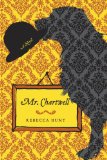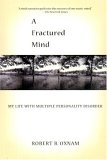Summary | Excerpt | Reviews | Beyond the book | Read-Alikes | Genres & Themes | Author Bio

From the book jacket: Depression, linked in our culture to a long
tradition of “heroic melancholy,” is often understood as ennobling—a source of
soulfulness and creativity. Tracing this belief from Aristotle to the Romantics
to Picasso, and to present-day memoirs of mood disorder, Kramer suggests that
the pervasiveness of the illness has distorted our sense of what it is to be
human. There is nothing heroic about depression, Kramer argues, and he presents
the latest scientific findings to support the fact that depression is a
disease—one that can have far-reaching health effects on its sufferers.
Comment: Kramer says that when he was on tour with Listening to Prozac
one question, or variation on a question, kept coming up - what if Prozac had
been available in van Gogh's time? In Against Depression Kramer pushes
back against the perception that depression is somehow ennobling - the burden
genius must bear, and that humanity would somehow be the poorer if depression
was conquered. In Kramer's mind it is simply a disease, "the most
devastating disease known to humankind," that can and should be cured.
He splits his book into three parts - in the first part ("What It Is to Us") he
explores why it is we could find depression an attractive (for want of a
better word) condition - tracing the history of depression from Hippocrates
through the Renaissance and the romantic "cult of melancholy" to the modern day.
In the second part, "What It Is", he explores the biology of depression,
and in the last part, "What It Will Be" he envisions the benefits of a world
free from depression - which he believes would be a world where people could
take risks with their emotions more freely in the knowledge that they were
protected from the sink-hole of all out depression.
All in all, a thoughtful, sometimes controversial, look at depression - but I do
suggest that, if you are interested in this topic, you read the book rather than
listen to the audio version read by Kramer - as, ironically, I found the latter
rather depressing. No doubt he is a fascinating man stuffed full with
fascinating ideas but, I'm sorry to say, his reading style was a little dull.
Peter D. Kramer, M.D., recently named host of the national, weekly public radio
series, The Infinite Mind, is "possibly the best-known psychiatrist in
America," as The New York Times put it. Peter Kramer received his M.D.
from Harvard and is the best-selling author of Listening to Prozac,
Should You Leave?, Spectacular Happiness, and Moments of
Engagement. His latest book, Against Depression, was published in May
2005.
In 2004, two programs of The Infinite Mind hosted by Kramer won top media
awards: a Gracie Allen Award from the American Women in Radio and Television for
an examination of "Domestic Violence" and a National Mental Health Association
Media Award for Between Two Worlds: Mental Health for Immigrants. Kramer has
written for The New York Times Magazine and The New York Times
Book Review, The Washington Post Book Review, The Washington Post,
the (London) Times Literary Supplement and U.S. News & World Report,
among other publications. He lives in Providence, Rhode Island, where he is
Clinical Professor of Psychiatry and Human Behavior at Brown University, and has
a private practice.
![]() This review
first ran in the August 17, 2006
issue of BookBrowse Recommends.
This review
first ran in the August 17, 2006
issue of BookBrowse Recommends.

If you liked Against Depression, try these:

by Rebecca Hunt
Published 2011
In this utterly original, moving, funny, and exuberant novel about Mr. Chartwell, a upright walking, talking black dog, an eminent statesman at the end of his career, and the vulnerable young woman.

by Robert B. Oxnam
Published 2006
The harrowing, insightful, and courageous account of a prominent man's struggle with multiple personalities.
It is among the commonplaces of education that we often first cut off the living root and then try to replace its ...
Click Here to find out who said this, as well as discovering other famous literary quotes!
Your guide toexceptional books
BookBrowse seeks out and recommends the best in contemporary fiction and nonfiction—books that not only engage and entertain but also deepen our understanding of ourselves and the world around us.